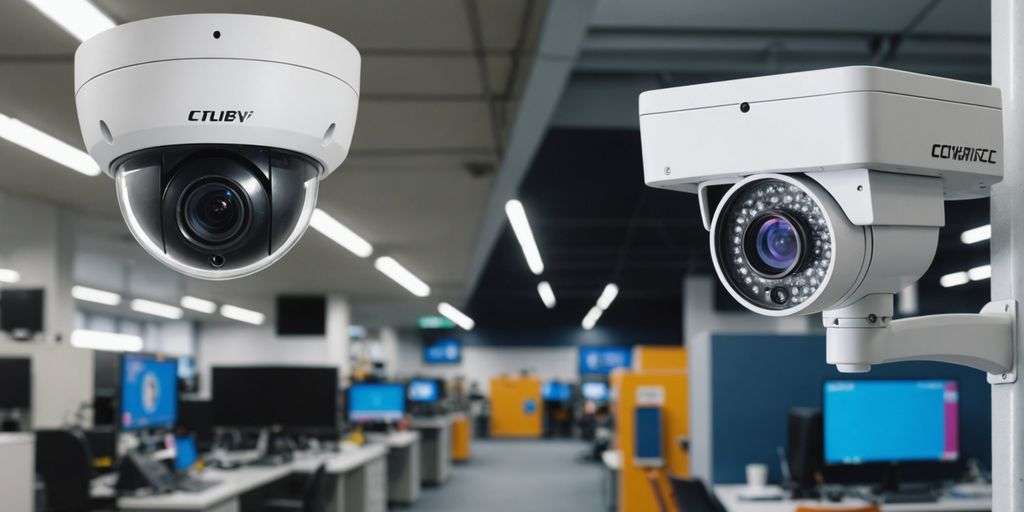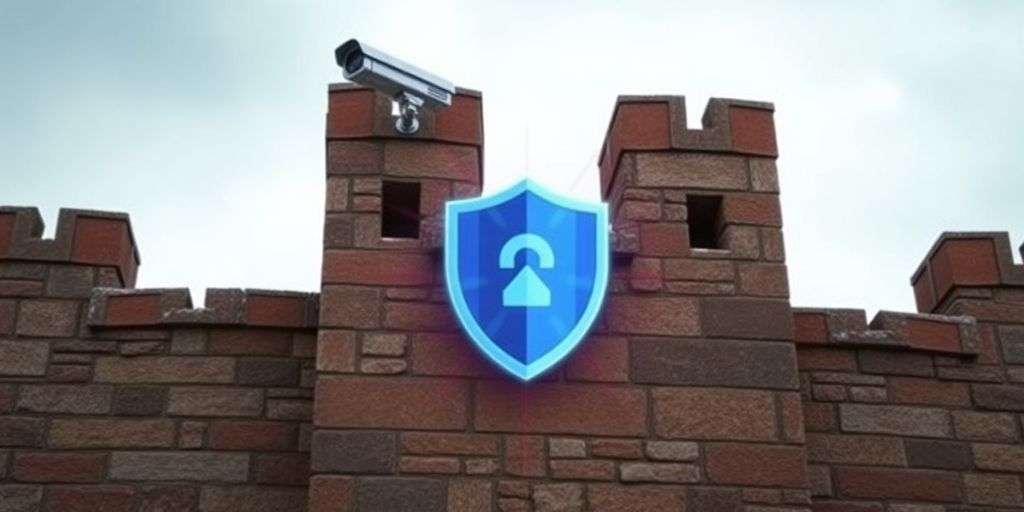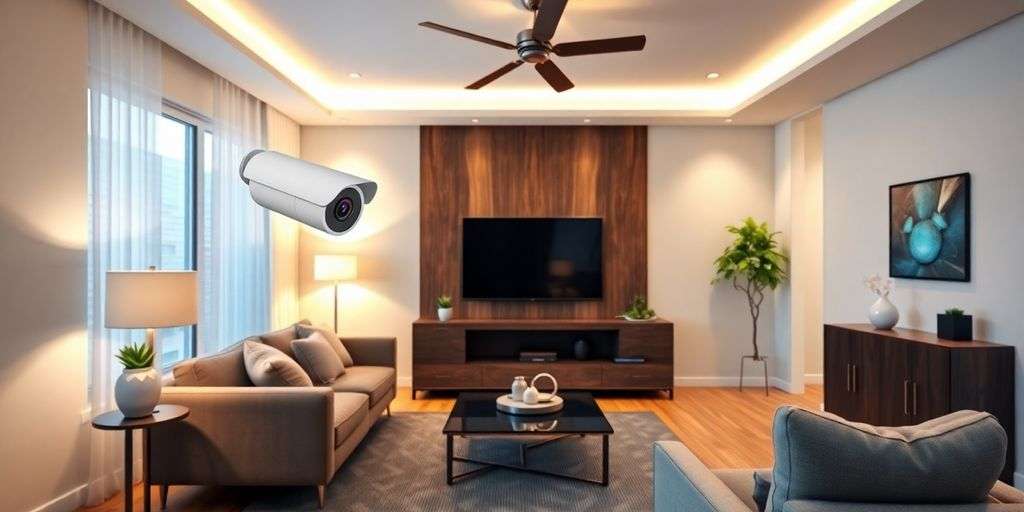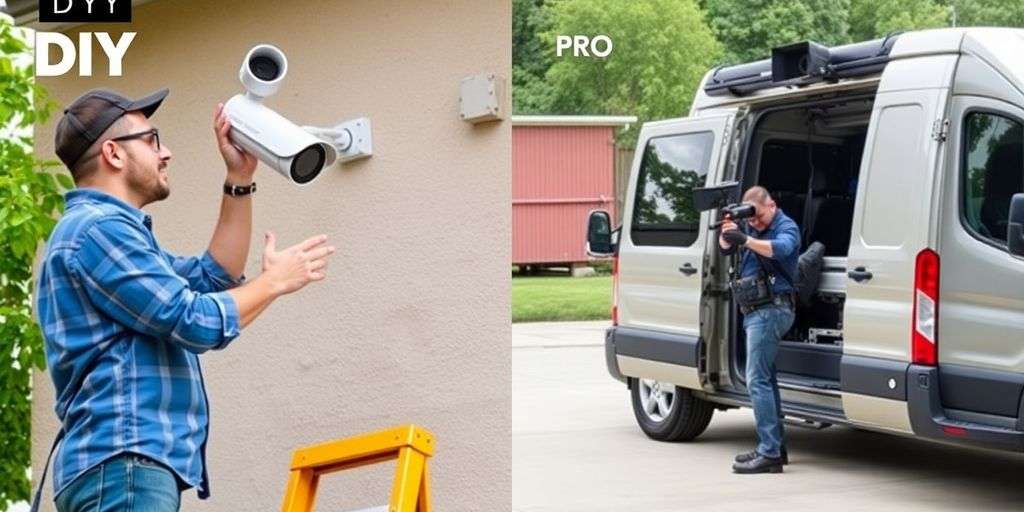Understanding Analogue CCTV Technology
How Analogue Cameras Work
Analogue CCTV cameras capture video images using a sensor. The resolution of this sensor is typically limited to 720×575 pixels. The video is captured in 60 intervals called "fields," and two fields make up a "frame." This method is known as interlaced transmission. The video signal is then sent to a recording and display device through a single coaxial cable. The signal complies with broadcast television standards, such as NTSC or PAL, to ensure compatibility with analogue televisions.
Common Issues with Analogue Systems
Analogue systems often face issues like noise interference, which can degrade video quality. Despite being shielded, coaxial cables can still pick up noise, leading to compression artefacts in recordings. Additionally, analogue TV standards have their own imperfections, such as decoding errors that can cause false colours in black-and-white images. These limitations make analogue systems less ideal for applications requiring high detail, like recognising faces or licence plates.
Advantages of Analogue CCTV
Despite their limitations, analogue CCTV systems offer some advantages. They are generally easier to set up and use, making them a good choice for those who prefer straightforward technology. Analogue systems are also typically more affordable than their IP counterparts. For many users, the simplicity and lower cost of analogue systems make them a viable option for basic security needs.
When considering a security solution, it’s essential to weigh the pros and cons of each technology to find the best fit for your needs.
Exploring IP CCTV Systems

How IP Cameras Function
IP cameras, also known as network cameras, capture and process video data digitally. Unlike analogue cameras, they transmit data over an IP network, allowing for remote access and control. This means you can view your security footage from anywhere with an internet connection. IP cameras often come with built-in features like motion detection and tampering alerts, which can be communicated to a central server using various IP protocols.
Benefits of IP Technology
IP CCTV systems offer several advantages over their analogue counterparts:
- High Resolution: IP cameras provide superior image quality, often in HD or higher resolutions.
- Scalability: Easily add more cameras to the system without significant infrastructure changes.
- Remote Access: View and manage your security system from any location.
- Advanced Features: Built-in analytics, such as motion detection and facial recognition.
Challenges in Implementing IP Systems
While IP systems offer many benefits, there are some challenges to consider:
- Complex Installation: Setting up an IP system can be more complicated and may require professional installation services.
- Higher Initial Costs: The upfront cost of IP cameras and network equipment can be higher than analogue systems.
- Network Dependency: The performance of IP cameras is reliant on the quality and reliability of the network.
When planning a CCTV installation, it’s crucial to assess your specific needs and consider both the advantages and challenges of IP systems. Professional installation services can ensure optimal camera placement and system integration, enhancing the overall effectiveness of your security setup.
Comparing Analogue and IP CCTV
Resolution and Image Quality
When it comes to resolution and image quality, IP cameras generally outperform analogue systems. Analogue cameras are limited by the NTSC and PAL standards, which cap their resolution. In contrast, IP cameras can offer high-definition and even ultra-high-definition video, providing clearer and more detailed images.
Installation and Maintenance
Installing and maintaining IP cameras can be more complex than analogue systems. IP cameras require network infrastructure, which can be challenging to set up. However, once installed, they offer easier remote access and management. Analogue systems, on the other hand, are simpler to install but may require more frequent maintenance due to their susceptibility to signal degradation.
Cost Considerations
Analogue systems are generally less expensive upfront compared to IP systems. The cost of IP cameras and the necessary network equipment can be higher. However, IP systems may offer better long-term value due to their advanced features and scalability.
Choosing between analogue and IP CCTV systems depends on your specific needs and budget. While IP systems offer superior quality and advanced features, analogue systems are more straightforward and cost-effective initially.
Making the Right Choice for Your Needs
Assessing Your Security Requirements
When choosing between analogue and IP CCTV systems, it’s crucial to evaluate your specific security needs. Consider the following questions:
- What areas need surveillance?
- Do you require high-resolution images for identification purposes?
- Is remote access to live footage important?
Future-Proofing Your Investment
Investing in a CCTV system is a long-term commitment. Ensure your choice can adapt to future technological advancements. IP systems often offer better scalability and integration with other smart devices, making them a more future-proof option.
Expert Recommendations
Consulting with security professionals can provide valuable insights. They can assess your property, recommend suitable equipment, and help you understand the pros and cons of each system. Expert advice can be the difference between a secure environment and one with vulnerabilities.
Making an informed decision involves understanding your current needs and anticipating future requirements. Choose a system that offers flexibility and reliability.
Conclusion
In the end, choosing between analogue and IP CCTV systems boils down to your specific needs and circumstances. Analogue systems, while older, are still reliable and cost-effective for basic surveillance. On the other hand, IP cameras offer advanced features, better image quality, and more flexibility, making them ideal for modern security needs. As technology continues to evolve, IP systems are likely to become even more prevalent. However, understanding both technologies will help you make an informed decision that best suits your security requirements. Remember, the best system is the one that meets your needs and fits within your budget.
Frequently Asked Questions
What is the main difference between analogue and IP CCTV cameras?
Analogue cameras send video as a continuous signal over coaxial cables, while IP cameras send video as data over a network. This means IP cameras can offer higher resolution and more features.
Are IP cameras more expensive than analogue cameras?
Generally, IP cameras can be more expensive initially. However, they can save money in the long run due to easier installation, scalability, and better image quality.
Can I use both analogue and IP cameras in the same system?
Yes, you can use both types in a hybrid system. You might need a video encoder to convert analogue signals to digital so they can be managed together.





